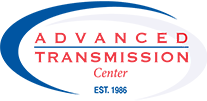The torque converter is an important component of the automatic transmission system, responsible for transferring engine power to the transmission and allowing the vehicle to come to a stop without stalling the engine. When a torque converter starts to fail, it can lead to various transmission problems that affect the performance and drivability of your vehicle. Understanding the symptoms of a bad torque converter can help you diagnose issues early and take action before more severe damage occurs. This article covers the key symptoms of a failing torque converter, the potential causes, and what steps you can take to address these problems.
What is a Torque Converter?
A torque converter is a type of fluid coupling that sits between the engine and the transmission in vehicles with automatic transmissions. It performs the function of a clutch in a manual transmission, allowing the engine to run while the vehicle is stationary and smoothly transmitting power to the transmission when accelerating.
How the Torque Converter Works:
- The torque converter consists of four main components: the pump, turbine, stator, and transmission fluid.
- As the engine spins, it drives the pump, which circulates transmission fluid through the torque converter.
- The fluid flow from the pump spins the turbine, which is connected to the transmission, thereby transferring power from the engine to the wheels.
- The stator sits between the pump and turbine, redirecting fluid to increase efficiency and torque multiplication, especially at lower speeds.
When the torque converter malfunctions, it can disrupt the smooth transfer of power and lead to various symptoms that affect vehicle performance.
Common Symptoms of a Bad Torque Converter
Recognizing the symptoms of a failing torque converter can help you address issues before they lead to more extensive transmission damage. Here are some common signs to watch for:
- Slipping Transmission
- Symptom: A slipping transmission occurs when the vehicle suddenly loses acceleration or experiences inconsistent power delivery, especially when shifting gears. You might notice the engine revving higher than usual without a corresponding increase in speed.
- Cause: Slipping can result from a failing torque converter not efficiently transferring power from the engine to the transmission, often due to worn or damaged internal components such as the stator or turbine.
- Overheating Transmission
- Symptom: Transmission overheating can be indicated by warning lights on the dashboard or a noticeable burning smell coming from the transmission area. Overheating can also cause rough or delayed shifting.
- Cause: A malfunctioning torque converter can cause transmission fluid to overheat due to excessive slippage or improper fluid circulation, which leads to increased friction and heat buildup.
- Shuddering or Vibrations
- Symptom: Shuddering or vibrations, often described as a “chattering” or “shaking” feeling, can occur when accelerating, particularly at low speeds or when shifting into higher gears.
- Cause: This shuddering is often caused by a torque converter clutch that is not engaging or disengaging properly, leading to uneven power transfer and vibrations through the drivetrain.
- Strange Noises
- Symptom: Unusual noises such as whining, grinding, or clunking sounds coming from the transmission area can indicate a problem with the torque converter. These noises may be more noticeable when the vehicle is in gear or under acceleration.
- Cause: Noises can result from damaged or worn components within the torque converter, such as a failed bearing, broken stator, or loose turbine fins, which disrupt the fluid flow and cause abnormal sounds.
- Poor Acceleration and Loss of Power
- Symptom: A bad torque converter can cause a noticeable decrease in acceleration, making the vehicle feel sluggish and unresponsive. This symptom is often more pronounced when climbing hills or during heavy acceleration.
- Cause: Inefficient torque transfer due to internal damage or fluid issues can prevent the torque converter from multiplying engine torque effectively, leading to reduced power delivery.
- Stalling or Rough Idling
- Symptom: If the torque converter is failing, it can cause the vehicle to stall when coming to a stop or make the engine idle roughly. This can occur because the converter fails to disengage properly, keeping the engine engaged with the transmission at low speeds.
- Cause: Stalling or rough idling can be caused by a locked torque converter clutch or fluid flow problems that prevent proper disengagement when the vehicle is stationary.
- Check Engine Light or Transmission Warning Light
- Symptom: A bad torque converter can trigger diagnostic trouble codes (DTCs) that cause the Check Engine Light or a specific transmission warning light to illuminate on the dashboard.
- Cause: The vehicle’s computer may detect issues such as torque converter clutch circuit malfunctions, slippage, or incorrect gear ratios, which can indicate torque converter problems.
Causes of Torque Converter Failure
Understanding the causes of torque converter failure can help in preventing issues and maintaining your transmission’s health. Common causes include:
- Contaminated Transmission Fluid: Dirty or contaminated transmission fluid can cause internal components of the torque converter to wear prematurely, leading to failure.
- Excessive Heat: Overheating due to poor fluid circulation or slippage can cause damage to the torque converter’s internal seals, bearings, and clutches.
- Mechanical Wear: Over time, mechanical components such as the turbine, stator, and bearings can wear out, leading to loss of efficiency and performance.
- Poor Maintenance: Lack of regular transmission fluid changes or ignoring early symptoms of transmission issues can accelerate torque converter wear and lead to failure.
Diagnosing and Repairing a Bad Torque Converter
If you suspect your torque converter is failing, it’s important to have it diagnosed and repaired promptly to avoid further transmission damage. Here’s what to expect during the diagnosis and repair process:
- Diagnostic Testing: A qualified technician will typically perform a series of diagnostic tests, including a transmission fluid check, computer scans for DTCs, and a stall-speed test to evaluate the torque converter’s performance.
- Inspection: The technician may also inspect the torque converter for physical damage or wear by removing the entire transmission.
- Repair or Replacement: Depending on the severity of the issue, the torque converter may need to be repaired or replaced. Despite what some online sources claim, a fluid flush will NOT resolve any issues with a failing torque converter.
- Cost Considerations: Replacing a torque converter can be a labor-intensive process, as it often involves removing the transmission. Repair costs can vary widely based on the make and model of the vehicle, but it is generally advisable to address torque converter issues sooner rather than later to prevent more extensive transmission damage.
The torque converter plays a crucial role in the smooth operation of an automatic transmission, and recognizing the symptoms of a failing torque converter is essential for maintaining your vehicle’s performance and longevity. If you notice signs such as slipping, shuddering, or unusual noises, it’s important to consult a professional technician for a thorough diagnosis. Prompt attention to torque converter issues can help avoid costly repairs and ensure your vehicle continues to operate reliably.
Regular maintenance, including transmission fluid checks and changes, can go a long way in preventing torque converter problems. By understanding the symptoms and causes of torque converter failure, you can take proactive steps to keep your vehicle running smoothly and efficiently.


 Free Customer Towing Service
Free Customer Towing Service  Free TrueTest™ Inspection
Free TrueTest™ Inspection  Fast Transmission Services
Fast Transmission Services  Comprehensive Warranty in Denver
Comprehensive Warranty in Denver 

























